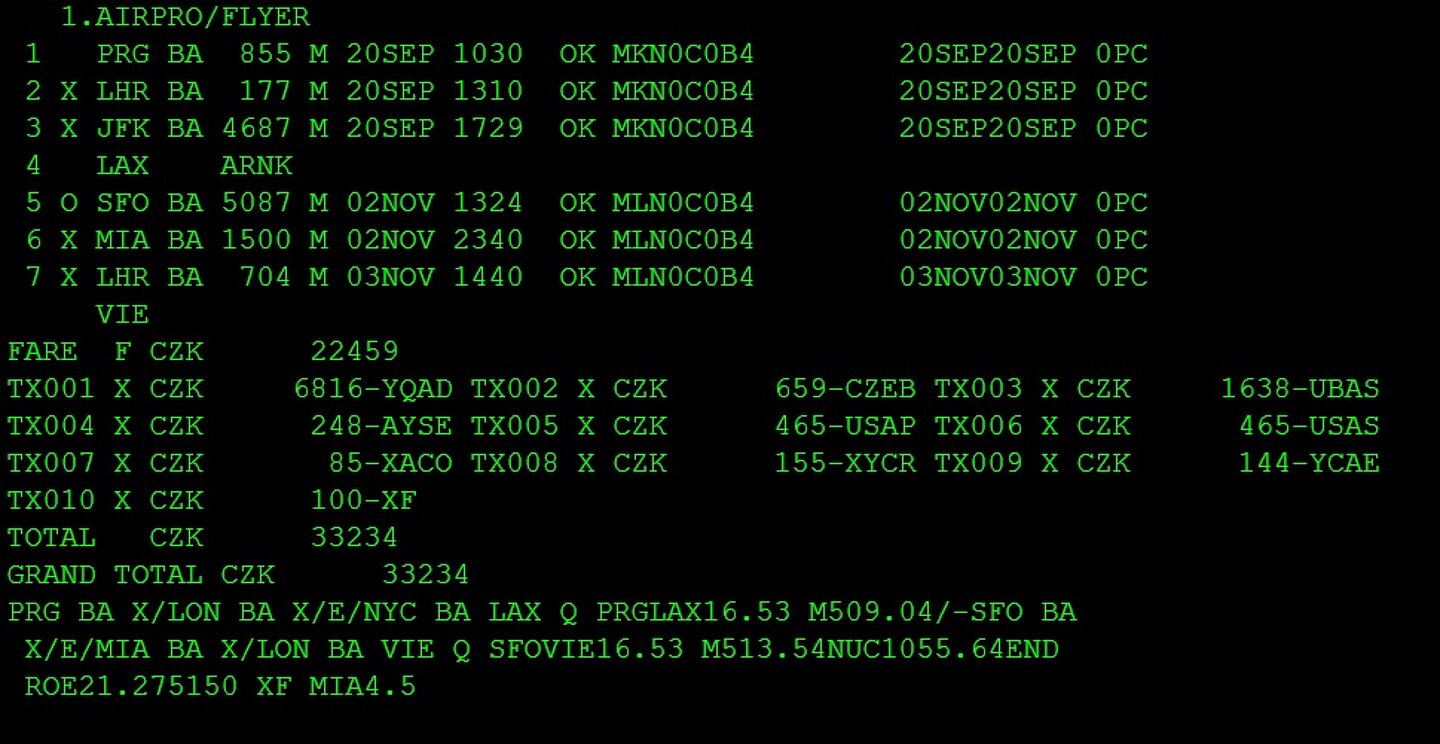An air ticket is a contract of carriage between the passenger and the airline not only on a given route between the airport of origin and destination, but also under given fare conditions, which the customer should be well acquainted with before purchasing a ticket and thus concluding such a contract. There are tens of millions of fares so that airlines can make the maximum profit from every seat on the plane - so do not think that if you paid a thousand crowns for your ticket to London, your neighbour in the seat next to you paid the same - he could have bought a ticket without any restrictions and at the last minute and paid, say, a thousand and fifteen.
The most important parts of the fare conditions, which are probably of interest to everyone, are as follows:
- Changeability of the ticket - the ticket can be completely non-changeable, changeable for a fee or changeable for free. However, there are precise rules on how tickets are eventually changed - if you change the ticket before the start of the trip, the entire ticket must be recalculated in addition to the change fee, taking into account the currently valid and applicable fare - so even if the fare conditions say that the change fee is only 1,000CZK, the final amount can be much higher. Once you have flown at least one flight on the itinerary, the fare conditions of the ticket you purchased will apply to the change. However, it may also happen that the newly selected flight may not have seats available on the original fare due to availability and the ticket must be upgraded to another fare - where you will again pay a change fee of e.g. 1,000Kč and then the difference between the original and new fare as well as airport charges.
- Refund/refund option - here again the ticket may be completely non-refundable, where in case of not completing the trip the customer is refunded only the unused airport charges (and therefore it is a good idea to take out travel insurance including cancellation of the ticket - for example with our partner ERV travel insurance company). Or the ticket can be refundable for a fixed fee or completely without any cancellation fee. If you have used part of the ticket, if the fare is refundable for a fee or free of charge, the value of the flown part is deducted from the original value of the ticket, the cancellation fee is deducted and the rest is refunded to the customer.
- Minimum length of stay - for flights within Europe, this is no longer very common, but for long-haul flights, expect that the cheapest fares will require you to spend at least one Saturday night or a specific number of days at your destination. So if you want to fly to New York on a Monday and back in two days, the price even in economy class can go up to three times the price if you stay in the destination over the weekend.
- Maximum length of stay - you probably won't normally have to deal with this condition, but if you were planning to travel to the other side of the world for a year's study, know that the cheapest fares allow you to stay at the destination for a maximum of 3 or 6 months. And for a 12-month stay, you'll need to choose a more expensive tariff.
- And finally, one super important rule that isn't often written about anywhere - the individual flights in the ticket must always be flown exactly as they go and as the ticket was issued. Which means that if you don't get on the first flight in the itinerary for some reason (for example, if you said you'd drive to Munich as a connecting airport for your flight to America because a friend was driving there), you can't use the rest of the flights on the original ticket. The reason is that different pricing and fare conditions apply to the itinerary modified in this way than those on your ticket. In this case, you must contact the travel agent or airline to have the fare of your original ticket recalculated to the new itinerary, and only after you have paid any price difference and your ticket has been rebooked can you start your journey.
Pretty much all of the travel classes or cabins that are massively used these days (i.e. economy, premium economy and business) offer single or very similar fare names to help you navigate them, and they usually have very similar conditions.
Basic (Light)
- basic tariff
- does not offer any checked baggage included in the price (and you have to buy this as a separate service - either at the time of booking the ticket or later)
- in the event of a no-show, only unused airport charges are refunded
- the ticket may not be changeable at all.
Classic
- a fare that usually includes at least one checked bag (up to 20kg)
- is changeable for a fee
- is refundable with a cancellation fee.
Flexible (Unrestricted)
- a fare that includes at least one checked bag (up to 20kg)
- is changeable free of charge
- is refundable free of charge.
